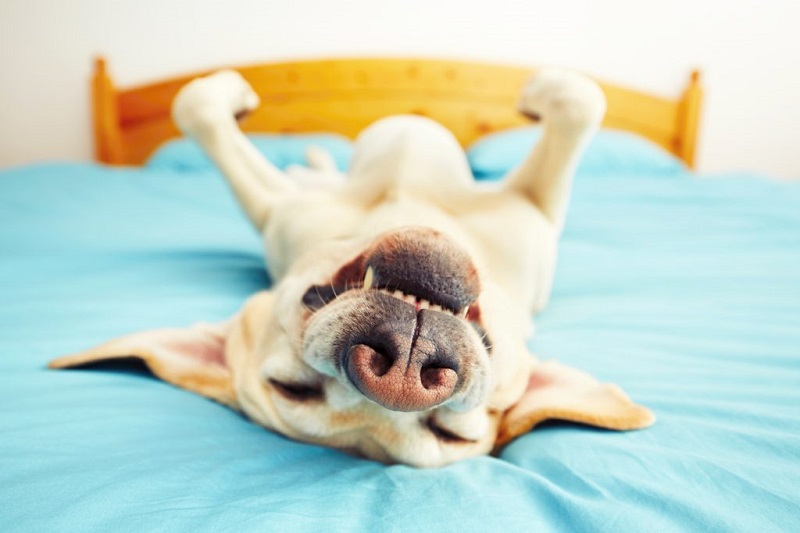There’s no denying that your dog looks utterly hilarious sleeping on their back with all four legs splayed out in the air. To us, this belly bearing position looks awkward and uncomfortable, when in reality it’s actually the most content and snug your canine can be.
Back sleeping enables your dog to completely relax all of their muscles, and indicates that they are in a state of deep sleep – so what are the reasons your dog sleeps in this position?
Why do dogs sleep on their back?
Aside from comfort, another reason your canine may sleep with their belly exposed is because it helps to regulate their body temperature while they’re asleep. The layer of fur on your dog’s stomach is a lot thinner than the fur on the rest of their body, and unlike humans, dogs only have sweat glands on their paws, so baring their tummy is a good way for them to cool down.
It’s worth noting that back sleeping is not a behaviour observed in dogs in the wild, nor is it something generally seen in dogs that sleep outside. This is because the position leaves your dog in an incredibly vulnerable state and indicates submission. If your canine takes to sleeping on their back, it’s a sign that they feel incredibly safe and secure.
Dog sleep positions
- Superman: If your dog sleeps stretched out on their stomach, it means that they’re relaxed, but still alert. They will likely jump to attention as soon as they hear you move.
- Curled up in a ball: Many puppies and outdoor dogs sleep with their paws tucked into their body and tail wrapped around them. This position conserves heat and protects dogs’ bodies from any unforeseen predators in the wild. While this is the least vulnerable position for a dog, it’s also the least restful.
- Side sleeper: Similar to when your dog is sleeping on its back, when they’re sleeping on their side they’re in a relatively deep sleep and are quite comfortable in their environment.
Let sleeping dogs lie
If your dog has drifted off into the land of nod, it’s important not to startle or awaken them unexpectedly. This is particularly essential to instil in young children, as even the most placid dog can sometimes react with aggression if they are woken suddenly.
If your dog is a new addition to the family and is struggling to get a good night’s sleep – and keeping you awake in the process – check out Settling your puppy for sleep.


